×
![]()
rail507: Instance-to-Instance Comparison Results
| Type: | Instance |
| Submitter: | A. Caprara, M. Fischetti, P. Toth |
| Description: | Railway crew scheduling |
| MIPLIB Entry |
Parent Instance (rail507)
All other instances below were be compared against this "query" instance.  |
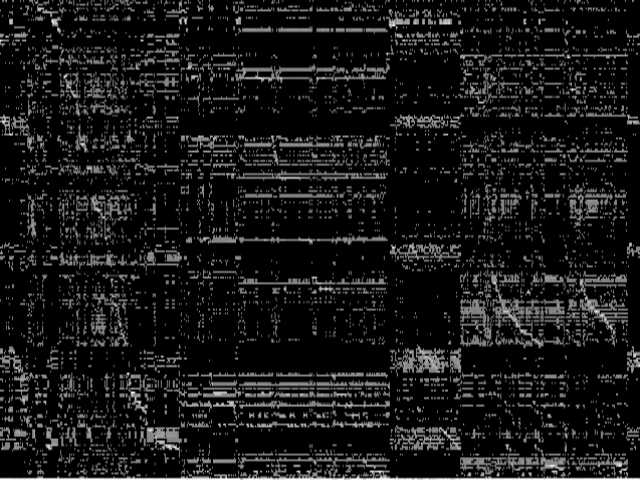 |
 |
 |
 |
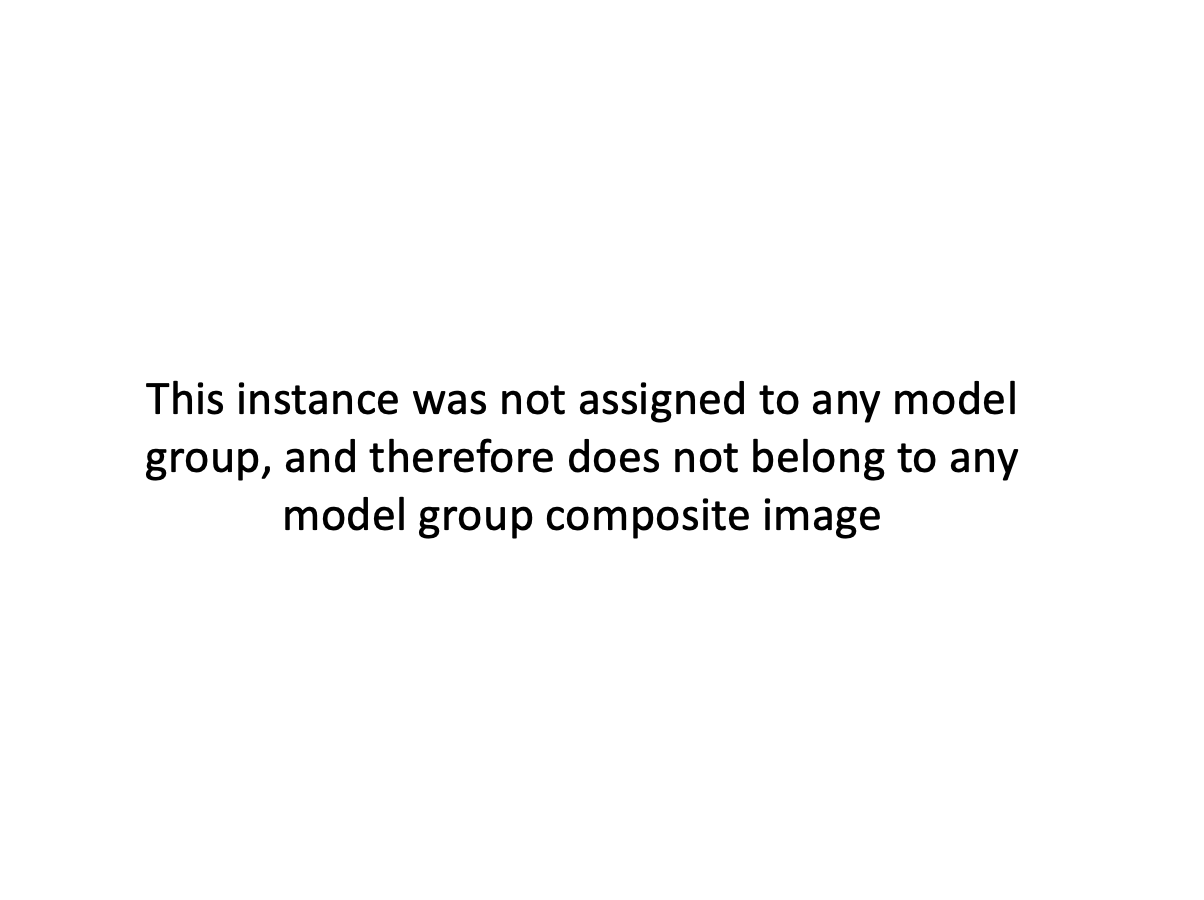 |
|
Raw
This is the CCM image before the decomposition procedure has been applied.
|
Decomposed
This is the CCM image after a decomposition procedure has been applied. This is the image used by the MIC's image-based comparisons for this query instance.
|
Composite of MIC Top 5
Composite of the five decomposed CCM images from the MIC Top 5.
|
Composite of MIPLIB Top 5
Composite of the five decomposed CCM images from the MIPLIB Top 5.
|
Model Group Composite Image
Composite of the decomposed CCM images for every instance in the same model group as this query.
|
MIC Top 5 Instances
These are the 5 decomposed CCM images that are most similar to decomposed CCM image for the the query instance, according to the ISS metric.  |
Decomposed
These decomposed images were created by GCG.
|
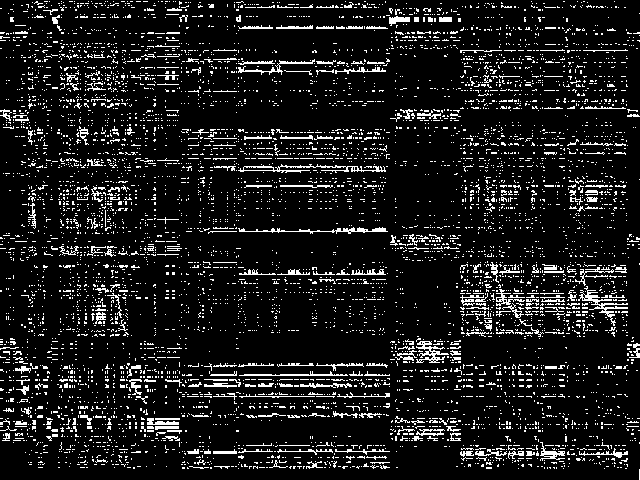 |
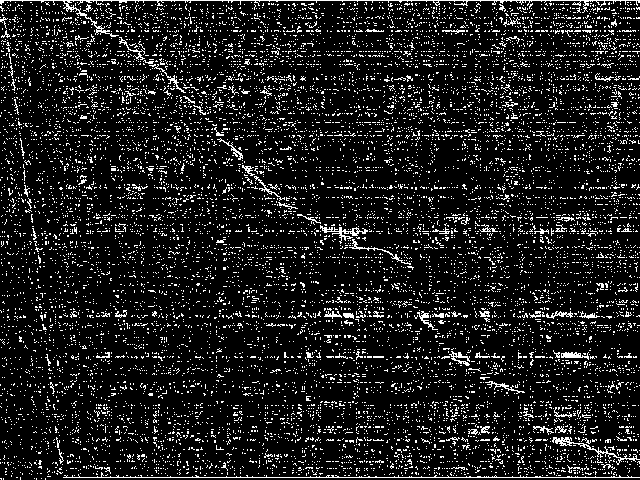 |
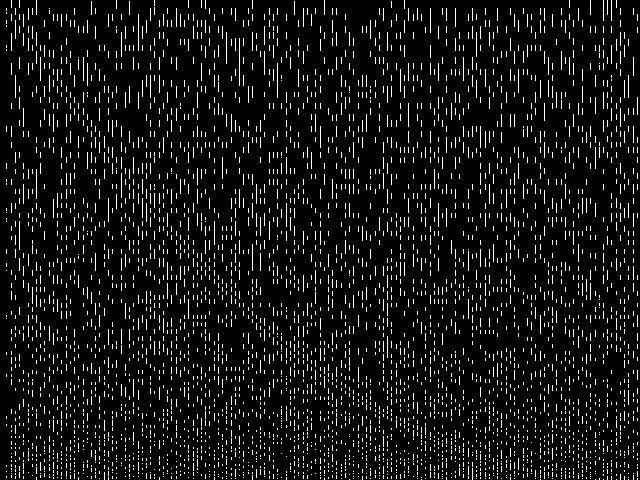 |
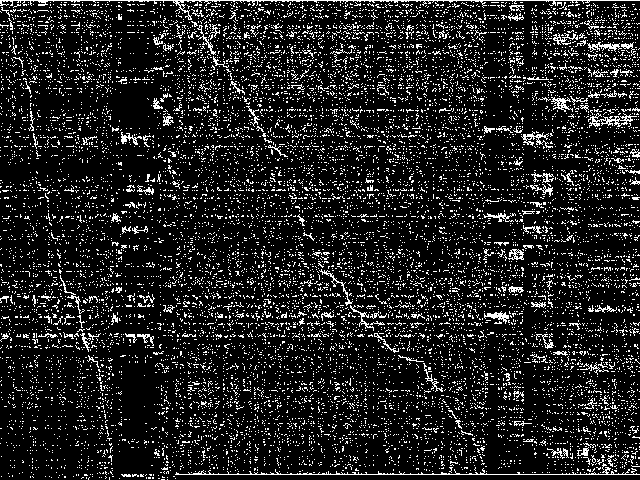 |
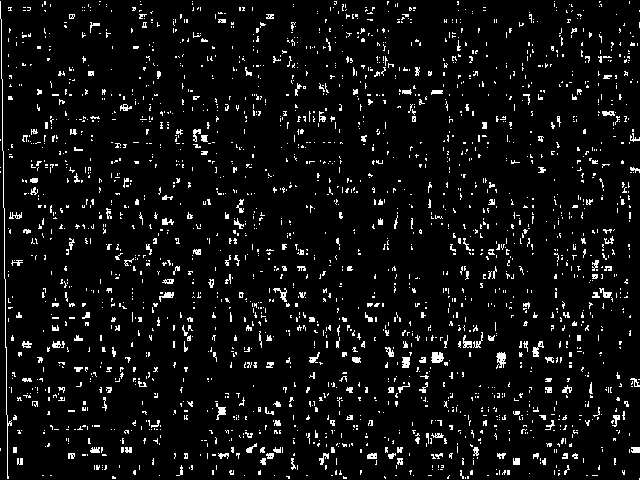 |
| Name | fast0507 [MIPLIB] | core2536-691 [MIPLIB] | v150d30-2hopcds [MIPLIB] | core4284-1064 [MIPLIB] | air04 [MIPLIB] | |
|
Rank / ISS
The image-based structural similarity (ISS) metric measures the Euclidean distance between the image-based feature vectors for the query instance and all other instances. A smaller ISS value indicates greater similarity.
|
1 / 0.629 | 2 / 0.914 | 3 / 0.931 | 4 / 0.979 | 5 / 0.988 | |
|
Raw
These images represent the CCM images in their raw forms (before any decomposition was applied) for the MIC top 5.
|
 |
 |
 |
 |
 |
MIPLIB Top 5 Instances
These are the 5 instances that are most closely related to the query instance, according to the instance statistic-based similarity measure employed by MIPLIB 2017  |
Decomposed
These decomposed images were created by GCG.
|
 |
 |
 |
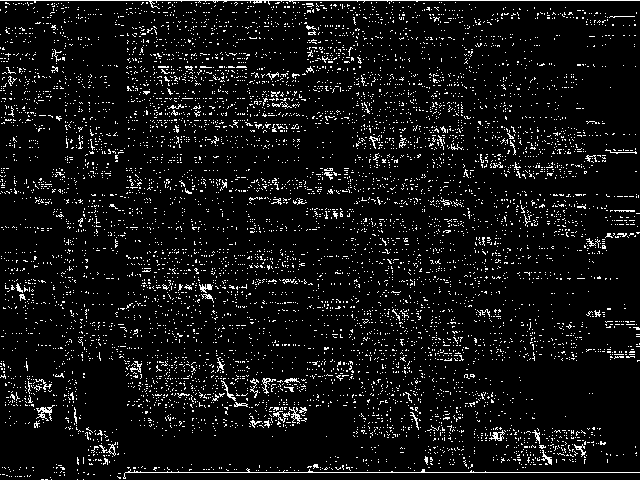 |
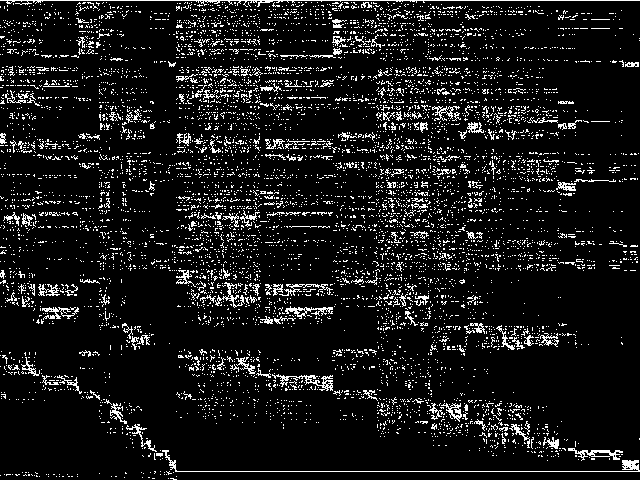 |
| Name | fast0507 [MIPLIB] | core2536-691 [MIPLIB] | core4284-1064 [MIPLIB] | core2586-950 [MIPLIB] | core4872-1529 [MIPLIB] | |
|
Rank / ISS
The image-based structural similarity (ISS) metric measures the Euclidean distance between the image-based feature vectors for the query instance and all model groups. A smaller ISS value indicates greater similarity.
|
1 / 0.629 | 2 / 0.914 | 4 / 0.979 | 14 / 1.096 | 29 / 1.289 | |
|
Raw
These images represent the CCM images in their raw forms (before any decomposition was applied) for the MIPLIB top 5.
|
 |
 |
 |
 |
 |
Instance Summary
The table below contains summary information for rail507, the five most similar instances to rail507 according to the MIC, and the five most similar instances to rail507 according to MIPLIB 2017.
| INSTANCE | SUBMITTER | DESCRIPTION | ISS | RANK | |
|---|---|---|---|---|---|
| Parent Instance | rail507 [MIPLIB] | A. Caprara, M. Fischetti, P. Toth | Railway crew scheduling | 0.000000 | - |
| MIC Top 5 | fast0507 [MIPLIB] | MIPLIB submission pool | Imported from the MIPLIB2010 submissions. | 0.629065 | 1 |
| core2536-691 [MIPLIB] | A. Caprara, M. Fischetti, P. Toth | Set covering instance coming from Italian railway models | 0.913912 | 2 | |
| v150d30-2hopcds [MIPLIB] | Austin Buchanan | A problem in wireless networks. The objective is to select a minimum number of relay nodes so that any two nonadjacent nodes can communicate by way of the chosen relay nodes in at most s hops, where s is a problem input. The 2-hop case of this problem can be formulated as a set cover/hitting set problem with n binary variables and n^2 constraints: _{ k N(i) N(j) } x_k 1 for nonadjacent node pairs {i,j}. Despite the formulation's simplicity, instances with as few as 120 variables are left unsolved after one hour using Gurobi 7.0.2. | 0.931167 | 3 | |
| core4284-1064 [MIPLIB] | A. Caprara, M. Fischetti, P. Toth | Set covering instance coming from Italian railway models | 0.979429 | 4 | |
| air04 [MIPLIB] | G. Astfalk | Airline crew scheduling set partitioning problem | 0.988394 | 5 | |
| MIPLIB Top 5 | fast0507 [MIPLIB] | MIPLIB submission pool | Imported from the MIPLIB2010 submissions. | 0.629065 | 1 |
| core2536-691 [MIPLIB] | A. Caprara, M. Fischetti, P. Toth | Set covering instance coming from Italian railway models | 0.913912 | 2 | |
| core4284-1064 [MIPLIB] | A. Caprara, M. Fischetti, P. Toth | Set covering instance coming from Italian railway models | 0.979429 | 4 | |
| core2586-950 [MIPLIB] | A. Caprara, M. Fischetti, P. Toth | Set covering instance coming from Italian railway models | 1.096474 | 14 | |
| core4872-1529 [MIPLIB] | A. Caprara, M. Fischetti, P. Toth | Set covering instance coming from Italian railway models | 1.289126 | 29 |
rail507: Instance-to-Model Comparison Results
| Model Group Assignment from MIPLIB: | no model group assignment |
| Assigned Model Group Rank/ISS in the MIC: | N.A. / N.A. |
MIC Top 5 Model Groups
These are the 5 model group composite (MGC) images that are most similar to the decomposed CCM image for the query instance, according to the ISS metric.  |
These are model group composite (MGC) images for the MIC top 5 model groups.
|
 |
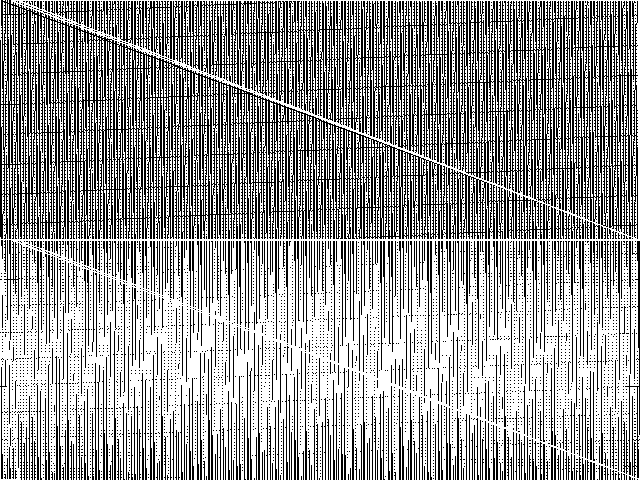 |
 |
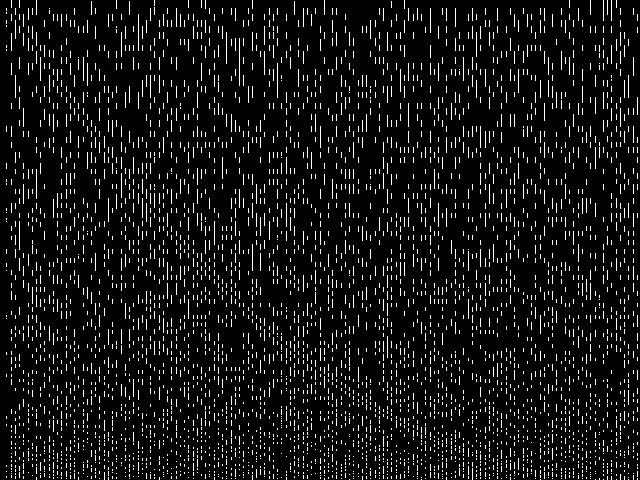 |
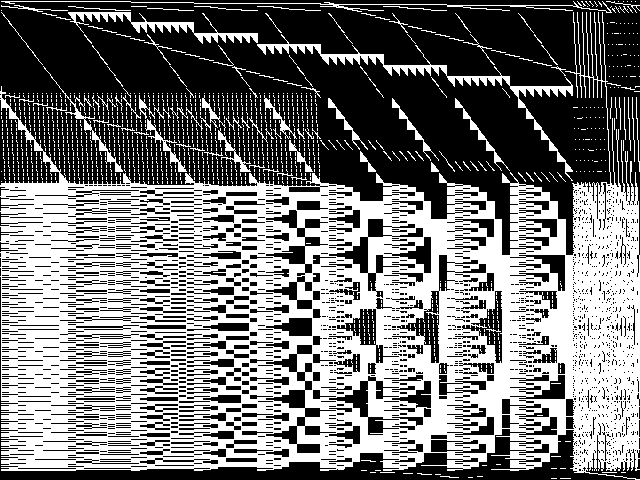 |
| Name | iis | neos-pseudoapplication-106 | air | 2hopcds | neos-pseudoapplication-23 | |
|
Rank / ISS
The image-based structural similarity (ISS) metric measures the Euclidean distance between the image-based feature vectors for the query instance and all other instances. A smaller ISS value indicates greater similarity.
|
1 / 1.105 | 2 / 1.151 | 3 / 1.299 | 4 / 1.320 | 5 / 1.330 |
Model Group Summary
The table below contains summary information for the five most similar model groups to rail507 according to the MIC.
| MODEL GROUP | SUBMITTER | DESCRIPTION | ISS | RANK | |
|---|---|---|---|---|---|
| MIC Top 5 | iis | Marc Pfetsch | 23 "middlehard" Set-Covering Models for MIPLIB: they have a small number of variables compared to the number of constraints and CPLEX 12.1 needs about one hour to solve them.For more information, have a look into the readme file which explains how the models can be created. | 1.104522 | 1 |
| neos-pseudoapplication-106 | Hans Mittelmann | Collection of anonymous submissions to the NEOS Server for Optimization | 1.150595 | 2 | |
| air | G. Astfalk | Airline crew scheduling set partitioning problem | 1.298821 | 3 | |
| 2hopcds | Austin Buchanan | A problem in wireless networks. The objective is to select a minimum number of relay nodes so that any two nonadjacent nodes can communicate by way of the chosen relay nodes in at most s hops, where s is a problem input. The 2-hop case of this problem can be formulated as a set cover/hitting set problem with n binary variables and n^2 constraints: _{ k N(i) N(j) } x_k 1 for nonadjacent node pairs {i,j}. Despite the formulation's simplicity, models with as few as 120 variables are left unsolved after one hour using Gurobi 7.0.2. | 1.319630 | 4 | |
| neos-pseudoapplication-23 | NEOS Server Submission | Imported from the MIPLIB2010 submissions. | 1.330372 | 5 |

